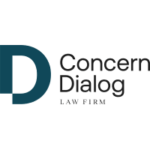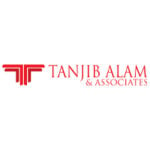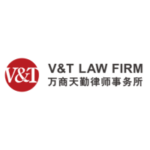-
What are the main methods of resolving disputes in your jurisdiction?
There are many methods for resolving disputes, including informal bargaining, mediation, conciliation, litigation, and arbitration. While litigation is the most common form of dispute resolution, it is still an option to resolve to arbitration in most commercial matters. There is also now a “Preparation and Mediation” body in Economic Courts, where parties must work through the “Preparation and Mediation” body first (Article 8 of Law No. 120 of 2008 to establish Economic Courts). The body leads the mediation for cases in the Economic Courts in most circumstances, with the exceptions only for interim measures, criminal offences, and claims laid out in Articles 3 and 7 of Law No. 120 of 2008). Conciliation is also provided in the law, as available to the conciliation judge in partial claims (Article 64 of the Egyptian Civil and Commercial Procedures Code (“ECCPC”)). Additionally, usage of “Dispute Resolution” committees has seen broadening applicability, particularly in the arena of litigation before government. Certain unilateral methods also exist to resolve specific classes of dispute, such as issuing performance orders when the other party did not attend (i.e. does not respond to proceedings).
-
What are the main procedural rules governing litigation in your jurisdiction?
In most respects, the ECCPC is the main framework for the litigation procedure. The ECCPC outlines most of the procedure, including the initiation of proceedings, submission of documents, and appealing decisions. Most litigation in commercial matters is done in writing, with oral pleadings rare, except for cases which have a high monetary value at stake. The ECCPC also has a framework for the casual resolution of disputes through the other applicable law, Law No. 25 of 1968 on Evidence in Civil and Commercial Matters governs the production of evidence in any dispute, as well as the greater part of other matters of procedure under a) Laws relating to the structure of courts, such as Law No. 120 of 2008 establishing Economic Courts, Law No. 47 of 1972 on the State Council and b) Framework Codes such as the Civil Code and the Commercial Code. Substantive laws such as Law No. 82 of 2002 on Intellectual Property and Law No. 95 of 1992 on Capital Markets also include some rules of procedure. Some matters may also be governed by ministerial decrees or circulars from the relevant ministries.
-
What is the structure and organisation of local courts dealing with claims in your jurisdiction? What is the final court of appeal?
Egypt operates under a system based on civil law, which means that we have a dual justice system. On the one side, there is the ordinary courts, which are essentially a two-tiered system: Courts of First Instance and Courts of Appeal. We have the Court of Cassation to consider, which is a higher appellate court in a rare number of cases. The structure and organisation of the ordinary courts are set out in part by Law No. 46 of 1972 on Judicial Authority. Most cases are initially heard in the Courts of First Instance. However, small civil and commercial claims referred to as partial claims below EGP 200,000 and specific claims below EGP 30,000 as defined under Articles 42-43 of the ECCPC, are heard in the District Courts. These courts consists of a single judge acting as the court of first instance in matters of this nature. Appeals from the District Court decisions are referred to the Court of First Instance consisting of 3 judges. Some civil and commercial cases, particularly large cases (over EGP 200,000), are referred directly to establishment of Court of First Instance and appeals to the Court of Appeal. These appeal courts have the same procedure, and substantive review of evidence, merits of case and matters of law. The highest court of the ordinary judiciary is the Court of Cassation, which is based in Cairo, and the court of final appeal. Court of Cassation only considers appellate court verdicts, on matters of law, and not facts or evidence. Verdicts are rendered by panel of a least 5 judges.
In the ordinary court system, and particularly the Courts of First Instance and Courts of Appeal there are specialized circuit courts, which are created to deal with customized cases, i.e., specific types of disputes such as tenancy disputes (rental circuit). Other circuits are established through statute, as an example, authorized under Labour Law No. 14 of 2025, **Labour Circuit.** Furthermore, ordinary courts have sometimes designated judges to action emergent issues and the enforcement, expediting dispute settlement in ordinary courts without going through full litigation litigation. Although generally disputes are heard at ordinary courts, ordinary courts are home to also courts with specific jurisdiction. For instance, Economic Courts are based on Law No. 120 of 2008. Economic Courts exercise exclusive jurisdiction over economic disputes subject to particular substantive laws dealing with capital markets, monopolies, intellectual property, telecommunications, and consumer protection consistent with the mandates of Law No. 120 of 2008. Economic Courts are separate from District Courts, Courts of First Instance, Courts of Appeal. Economic Courts function on commercial and on criminal proceeding nexus with relevant specific laws governing subjects directed at specifically reviewing legal issues pointed at resolving economic disputes through the specific provisions of Law No. 120 0f 2008. Economic Courts have also generally primary and appellate circuits (for disputes under EGP 15 million) and appellate, disposing of hearing appeals of primary circuit’s decisions or disputes above EGP 15 million). The specialized appellate judicial circuit within the Court of Cassation dismiss appeals on the decisions of appellate circuits.
Similarly, with respect to administrative disputes, administrative judiciary, is typically accomplished by the administrative judiciary – usually conducted by the State Council (comparable to the Conseil d’État in France). In terms of structure, the State Council is an autonomous judiciary body comprised of court and non-court bodies. The courts, as part of the State Council, include the Disciplinary Courts, the Administrative Courts, the Courts of Administrative Justice, and the Supreme Administrative Court. Disciplinary Courts and Administrative Courts generally adjudicates on disputes concerning civil servants and government employees and Administrative Courts additionally are capable of hearing precise pieces of administrative contracts. Alternatively, other administrative matters are pursued within the Courts of Administrative Justice, which are the court of first review generally for administrative matters and serves at the same time as appellate courts for decisions from Disciplinary Courts and Administrative Courts. Courts of Administrative Justice operate via judges sitting in panels of three judges – similar to Courts of First Instance in the ordinary judiciary system. The apex of administrative courts, is the Supreme Administrative Court. Unlike Court of Cassation in the ordinary courts, the Supreme Administrative Court can consider both questions of law and questions of merits in certain situations. The Court sits with five judges when making a ruling – similar structures as the Court of Cassation. In the interest of position, above the ordinary and administrative courts is the Supreme Constitutional Court. Although primary and exclusive jurisdiction of the Supreme Constitutional Court is the review of the constitutionality of laws decrees, other competencies include resolving disputes between conflicting final judgments from more than one court.
-
How long does it typically take from commencing proceedings to get to trial in your jurisdiction?
There is no established period for trial because it depends on the dispute. The length of time between commencing litigation and trial could depend on, amongst other things, the nature and complexity of the case, the number of parties to the dispute and when they made their submissions to the court. Also, the locality of the court also makes a difference. Ordinary courts do not have a pre-trial process so it would usually take about 1–2 months for the first hearing to occur, as opposed to some specialized courts. In Economic Courts, for example, mediation may occur by the “Preparation and Mediation” subdivision, and may take some weeks. In Courts of Administrative Justice, the legal issue is always reviewed by the State Commissioners’ Body, which will issue a legal opinion (which is not binding) before the hearing can start, and this review usually takes a few months. In the courts of last resort, ie the Court of Cassation and the Supreme Administrative Court, cases are often reviewed by specialized circuits and can dismiss these cases as inadmissible before reaching the trial stage which also takes about a couple of months before hearing and trial processes are allowed to commence.
-
Are hearings held in public and are documents filed at court available to the public in your jurisdiction? Are there any exceptions?
Hearings usually take place in the public eye; however, in the interests of maintaining public order, morals or family values, the court may decide to hold hearings privately – either at the request of one of the parties or at the court’s own convenience. Article 20 of Law No. 46 of 1972 on Judicial Authority states that judgments are provided in the name of the people; therefore, judgments are public. However, case documents are not available to the public; they are available for preview only by parties with standing in the case (Article 3 of ECCPC).
-
What, if any, are the relevant limitation periods in your jurisdiction?
Limitation periods are addressed in Articles (374-388) of the Egyptian Civil Code (ECC), alongside limitation periods in other laws. The general obligation subject to limitation periods is arguably 15 years. Nevertheless, there are obligations with shorter limitation periods; for example, periodical rights have a limitation period of 5 years. Taxes and fees due to the state have a limitation period of 3 years, while Employee rights have a limitation period of 1 year. In addition, according to Article 172 of ECC, obligations arising from tort claims have a limitation period of 3 years from the date of becoming aware of the tort, but not longer than 15 years under all circumstances.
-
What, if any, are the pre-action conduct requirements in your jurisdiction and what, if any, are the consequences of non-compliance?
Under the Egyptian legal system, it is generally accepted that parties may go to the courts directly, and there are no pre-action conduct requirements. However, Article 8 of Law No. 120 of 2008 establishing the Economic Courts states that parties bringing actions before the Economic Court must go through the “Preparation and Mediation” body within those courts. This body will lead the mediation process in most cases, before trial. However, some claims are excluded from having to follow this process, including the interim measures, criminal offences and claims in Articles 3 and 7 of Law No. 120 of 2008. For some administrative disputes, resorting to “Dispute Resolution” Committees is compulsory before amicably resolving a dispute. In addition, for non-urgent administrative matters as soon as there is notice, then the parties must appear before the State Commissioners’ Body, which will review the parties’ submissions and issue a legal opinion to the court. The body may also, in some instances, suggest that the parties amicably settle their dispute in accordance with the consistent and longstanding jurisprudence of the administrative courts. Failure to comply with these pre-action procedures may render the judgment void.
-
How are proceedings commenced in your jurisdiction? Is service necessary and, if so, is this done by the court (or its agent) or by the parties?
Under Egyptian law, proceedings are commenced when the claimant submits the statement of claims to the competent court. The document must indicate a brief summary of facts, the claims and legal basis for each claim, and lastly the relief claimed. The competent court will not examine the statement of claims, but will fix a hearing date. The statement of claims must be served on the defendant before the hearing date. Service is accomplished by the court registry, which will serve the defendant in person. If the service in person is not possible, it will serve by a form of administrative public notice through either the Office of Public Prosecution for a legal person, the local Police Chief for a natural person, or by registered mail.
-
How does the court determine whether it has jurisdiction over a claim in your jurisdiction?
In order for the court in Egypt to have the authority to render a binding judgment over the merits of the dispute, the court must satisfy three types of jurisdiction. The types of jurisdiction that the court must satisfy include:
- International jurisdiction: The court will need to determine whether Egyptian courts have jurisdiction over the dispute, whether exclusive jurisdiction resides with a foreign court as dictated by Private International Law and the ECCPC Articles (28-35).
- Jurisdictional Competency: the Court must decide whether the dispute may fall under either the ordinary judiciary or the administrative judiciary, that is, on behalf of the Courts of the State Council – given the Egyptian system of both ordinary courts and administrative courts.
- Subject-Matter Competency: certain courts in Egypt may have exclusive jurisdiction over specific types of dispute explicitly established by their governing laws, like as an example: Economic courts have exclusive jurisdiction over specific commercial disputes and Family Courts may have exclusive jurisdiction over personal status matters disputes.
- Territorial Competency: the court must determine its territorial competency over the dispute according to Articles 49 – 62 of the ECCPC. However, even though territorial competency is a matter of public order, the court will not address it of its own motion unless one of the parties raises an objection on the ground that the court lacks territorial competency over the dispute.
- Competency based on the Dispute’s Value: the Court must determine its competency based on the value of the dispute in monetary terms, as set forth in Article 41 – 47 of the ECCPC. For ordinary courts, for disputes under EGP 200,000 – District Courts are competent; if they are over EGP 200,000 – Courts of First Instance are competent – of note, Economic Courts also have primary circuits (disputes under EGP 15 million) as well as appellate circuits of appeals from the primary circuit’s verdicts or disputes over EGP 15).
-
How does the court determine which law governs the claims in your jurisdiction?
Regarding conflict of laws, the court will apply the principles of Private International Law at Articles (6-28) of the ECC, and that leads the court to its findings for the determination of Egyptian law or another foreign law, the applicable law to the dispute.
-
In what circumstances, if any, can claims be disposed of without a full trial in your jurisdiction?
There is no exhaustive list in the law for circumstances in which claims can be disposed of without a full trial, however, there are circumstances that can arise for disposal of the claims without a trial, namely the court has no jurisdiction, or the parties amicably settle the dispute, or the claimant fails to attend the first court session after notice and the documents are insufficient for the court to rule.
-
What, if any, are the main types of interim remedies available in your jurisdiction?
Most of the Interim remedies fall under the jurisdiction of the judge of temporary matters that may be the same judge having original jurisdiction over the merits of the dispute, where there are in course proceedings over the dispute. Applications for interim remedies shall be made by separate interim petition before the judge of temporary matters. These measures are temporary and they last until the matter has been resolved by the competent court at the end of the main case.
A common form of interim remedies in commercial disputes are the conservatory seizure of the assets of the debtor in disputes concerning the existence of a debt and these remedies are aimed at conserving the value of the debt until the completion of a trial. This is set out in the provisions of Articles (316-324) of ECCPC.
Another type of interim remedies are possession claims which are also set out in Articles (958-975) of the ECC. The types of interim remedies relate to the protection of the possession of immovable property and restoring possession. These are raised to the competent judge by value of the contested amount of property. There are, however, several other types of interim remedies which exist under various different legal regimes. These processes include actions for preservation of status and requests for pre-trial testimonial, both referenced in Law No. 25 of 1968 on Evidence in Civil and Commercial Matters. Moreover, other interim remedies such as appointing a temporary manager over one of the party’s assets are provided in ECCPC.
-
After a claim has been commenced, what written documents must (or can) the parties submit in your jurisdiction? What is the usual timetable?
Documents such as memoranda, dockets, or other additional documents that may be submitted at the time of initial claim may also be submitted later at the first hearing of the case or subsequent court hearings; however, at any point in Article 97 of ECCPC also allows the judge to reject or accept submitted documents later in the proceedings, if accepted, which may cause a delay or speed up their process. If it is accepted later and causes delay, then the judge may impose fine against the party responsible for the delay in circumstances regarding Article 97 of ECCPC. Lastly, in Article 168 of ECCPC the opposing party must preview submitted documents on either party.
-
What, if any, are the rules for disclosure of documents in your jurisdiction? Are there any exceptions (e.g. on grounds of privilege, confidentiality or public interest)?
The law provides strict rules against lawyers, doctors, principals and similar professionals from disclosing any information to their principals, covered under their professional role, even following termination of that professional role and are only permitted to disclose on the instructions of principals if they are swear under oath, or if the commission of a misdemeanor or felony occurs (however following the events) which are covered in Article 66 of Law No. 25 of 1968 on Evidence in Civil and Commercial Matters, and Article 65 on Law No. 17 of 1983 on Lawyering also. Civil Servants are covered under the same circumstances, and if they are requested to disclose to one of the parties or the court, they are obliged to disclose (set out in Article 65 of Law No. 25 of 1968). Typically these exceptions occur in proceedings based on public interest, in particular highly politicized, however these are in limits on criminal or administrative proceedings.
-
How is witness evidence dealt with in your jurisdiction (and in particular, do witnesses give oral and/or written evidence and what, if any, are the rules on cross-examination)? Are depositions permitted?
In Civil and Commercial matters where the law does require evidence with written documents, and it is permitted under law, witness evidence may be used (pursuant to the Civil Code, Commercial Code, etc), When permitted by law and either requested by one of the parties or done by the court on its own request and is admissible and not irrelevant to the case. The law permits both oral and written witness evidence. However, the witness evidence in the form of written witness statement in the form of affidavits are subject to Articles 103-104 of the Law No. 25 of 1968 on Evidence in Civil and Commercial Matters, while those with respect to oral testimony are governed by the Articles (60-97). In terms of the oral testimonies the Law No. 25 of 1968 contains strict provisions under the law that the court and by the parties must indicate the incidents for the witness evidence needs to be collected. The investigation typically occurs before the panel of judges, but the court can assign another judge the task of taking the investigation. Written witness evidence must be collected all on the same day unless justified otherwise. Cross Examination if permitted, allows the judge to grant permission to the parties to question the witness’s directly. Otherwise, the judge will carry out the examination by asking questions submitted by the parties. Depositions are not permitted.
-
Is expert evidence permitted in your jurisdiction? If so, how is it dealt with (and in particular, are experts appointed by the court or the parties, and what duties do they owe)?
Expert evidence is specifically referred to within the Egyptian judicial system, and the courts treat it positively, but it is non-binding. The Evidence of Evidence Law No. 25 of 1968 on in Civil and Commercial Matters (Articles 134-162) governs much of what is contained within the expert role, including the conduct of experts, the structure of expert reports, remuneration, and procedures.
Expert witnesses can either be appointed by the parties or appointed by the Court. Court appointment is more common and typically done with a preliminary judgment that appoints the expert and details the work that needs to be completed along with the technical issues relevant to the case. Depending on the complexity of the matter, a single expert or a panel of three experts may be appointed. During the mandate of the expert, there can be multiple sessions allowing the parties to submit the relevant documents and provide oral arguments to clarify their positions and assist the expert in writing a complete report at the end of the process. Suspended the Court proceedings until the submission of the expert report.
In anticipation of the final report, experts need to include preliminary documentation to include; the claims of the parties, observations, and submitted documents as well as a detailed account of the tasks of the experts, their findings, and their professional opinion on the technical issue in dispute. At the end of expert session consultation, the experts put together the final report and submits it to the Court, which will then be available to the parties involved. The parties to the proceedings are able to view the report and take copies. The parties are also entitled to make objections with respect to the expert findings to the Court, and occasionally the Court will refer the expert to another expert or to a panel of three experts, for a report on the same issues. Regardless, the expert report is ultimately only a guide to assist the Court in deciding the technical aspects, and it is non-binding.
-
Can final and interim decisions be appealed in your jurisdiction? If so, to which court(s) and within what timescale?
Final decisions from Courts of Appeal may be challenged by extraordinary means of appeal. This is done by: 1) lodging an appeal before the court of cassation, within 60 days from the date of the decision, or 2) making an application for review to the court making the decision which may only be established under one of the 8 exhaustive circumstances listed under Article 241 of The ECCPC. An application for review must be made within 40 days from the date of the decision, unless one of the first four circumstances listed in Article 241 is applicable. In those cases, the 40 days will begin from the date of knowledge of the relevant circumstance. Interim decisions in urgent matters are appealable by the parties, within 15 days of the decision, as stated in Article 227 of The ECCPC.
-
What are the rules governing enforcement of foreign judgments in your jurisdiction?
In Egypt, the enforcement of civil and commercial foreign judgments must first be executed by way of an exequatur, which is primarily governed by the provisions in Articles (296-301) of the ECCPC. The proceedings for enforcement would normally take place before the Court of First Instance which would have regional jurisdiction over the dispute if it was commenced in Egypt. The Court must, beforehand, examine that the foreign judgment has satisfied certain preconditions before issuing the exequatur: 1) Reciprocity: the foreign state must recognize and enforce Egyptian judgments by way of reciprocity. 2) Jurisdiction: the foreign court must not have violated the dominant rules of Private International Law and Egyptian courts should not have exclusive jurisdiction in relation to the foreign court, and the foreign court must have been competent according to its jurisdictional rules in its domestic law.3) Proper Notice and Representation: the parties must have been properly noticed and represented. 4) Final and Not Subject to Appeal: the judgment must have been final and not subject to appeal in the foreign state. 5) Public Policy: the foreign judgment should not be contrary to public policy in Egypt or contradict a subsequent domestic judgment.
-
Can the costs of litigation (e.g. court costs, as well as the parties’ costs of instructing lawyers, experts and other professionals) be recovered from the other side in your jurisdiction?
The general rule is that the losing party in any matter has to pay all costs associated with the proceedings to the government (Article 184 of ECCPC). These costs are determined under the provisions of Law No 90 of 1944 on Judicial Fees and Articles (36-41) of ECCPC, together with costs payable to the lawyers’ pension fund (Article 187 of Law No 17 of 1983 on Lawyering). However, the parties’ legal fees for costs to instruct counsel, are not included in these costs assessed by the Court. However, it does not stop the winning party from bringing a separate action for the award of compensation from the losing party for damages claimed as a result of their litigation costs, under separate heads of loss. In situations where both parties have lost and won on some claims, the Court may divide the costs in the following manner: both parties will only bear the costs arising from their own claims; the costs will be divided equally; or one party will be liable for all costs. Further, the winning party can be ordered to bear the costs if the Court decides that the proceedings were unnecessary (Article of 185 of ECCPC). The Court has the further discretion to order a party to be liable for the costs incurred by a malicious or abusive claim (Article 188 of ECCPC). The losing party can dispute the costs awarded by filing a grievance within 8 days from notification of the the costs, as long as proper service is made of the costs notification.
-
What, if any, are the collective redress (e.g. class action) mechanisms in your jurisdiction?
Collective redress, for example, class actions, under Egyptian law is generally not regulated, because claims are limited to parties to the relevant case. However, the new Labor Law No. 14 of 2025 provides a possible opening, for class actions to be allowed in collective labor disputes against an employer. Collective labor disputes are required to go through conciliation procedures first, and if there is no settlement found, referred to the Mediation and Arbitration Centre. Thus, the dispute will be resolved through arbitration and not by common law, litigation directly before the ordinary courts labor circuits.
-
What, if any, are the mechanisms for joining third parties to ongoing proceedings and/or consolidating two sets of proceedings in your jurisdiction?
There are two possible ways a new party can join a party in proceedings: 1) at the request of one of the parties to the dispute if the joinder the third party is necessary for the adjudication of the case; or 2) at the request of the third party directly, once they appear before the court and claim to join. There are two types of third-party joinder: a) in first case, the third party is bringing their own causes of action against our claims in regard to the subject matter of the dispute, and this type of joinder is only permitted before the First Court Instance; or b) in the second case, the third party joins in on one of the party’s claims without its own causes of action, and this type of joinder can be permitted for the first time before the Court of Appeal. When it comes to the consolidation of two sets of proceedings, the court may order consolidation only if the same parties to the proceedings are involved in both and the disputes are related.
-
Are third parties allowed to fund litigation in your jurisdiction? If so, are there any restrictions on this and can third party funders be made liable for the costs incurred by the other side?
In my jurisdiction, there is currently no regulation of the third party funding of litigation proceedings in Egyptian law; including by the main procedural codes such as the ECCPC or Law No. 17 of 1983 on Lawyering. The liability and obligations of the third-party funder will depend largely on the contractual agreement between the litigating party and the third-party funder, as well as any restrictions in imputing liability to the funder. Third party funding is not currently common in Egypt, but there are discussions ongoing about third party funding as a potential area of emerging investment, particularly by leading financial service providers in the region.
-
What has been the impact of the COVID-19 pandemic on litigation in your jurisdiction?
Increased emphasis on mechanisation and digitalisation of litigation proceedings has continued to occur as a result of COVID-19, and various steps to support this transition have been taken, including the introduction of Law No. 146 of 2019, which amended Law No. 120 of 2008 that created the Economic Courts, to allow electronic filing of cases in courts and electronic service of notices. In the same context, pilot programs were launched to conduct hearings by remote hearing and together with leading technological companies, regional development began to develop a digital litigation platform for Economic Courts. Ministerial Decree No. 8548/2020 created an electronic registry for these Economic Courts, which was developed use in late 2022. By the end of 2023, a total of 7,688 cases had been filed electronically. Similar change has commenced in ordinary courts, of which by August 2020 was represented to payment with an increase in the use of electronic and/or remote technology in the courts, with electronic filings, enough so that by the end of 2023, 64 courts including District, Courts of First Instance, and Courts of Appeal now have been established to also file electronically, and in a separate program, electronic service of notices or communications of the courts noticed was implemented in 38 courts (besides the implications of the precedent case Law No. 146 of 2019 created a Covid-19 pandemic associated force majeure event from March 17, 2020, until and including June 27, 2020). In subsequent proceedings in 2021, the Court of Cassation confirmed that the period of force majeure constituted a period of calculation for time limitation purposes in their subsequent appeal filed from that period.
-
What is the main advantage and the main disadvantage of litigating international commercial disputes in your jurisdiction?
A main advantage of the conditions in the Egyptian judicial system is that dispute resolution is accessible due to relatively low litigation costs. Egypt’s location, legal culture, and history of providing important rulings in regional issues make it an attractive place for both international commercial dispute resolution through litigation with judgments enforceable abroad. Egypt has several multilateral treaties, including the Riyadh Convention on Judicial Cooperation, but one major disadvantage to litigants is the number and difference of jurisdictions in procedural and applicable laws a litigant might decide to pursue, which local procedures can result in lengthy and complicated litigation outcomes prior to a final decision as a civil or commercial dispute. While rules governing evidence in the form of plan, disclosure and discovery remain underdeveloped with hearings largely determined on written submissions, there are some limited outcomes available jn the process of civil and commercial matters into criminal proceedings where a relatively fast-track could be pursued by the introduction of civil damages as part of a criminal process, which could also have it’s own uncertainties and risks. The Economic courts were set up to try to provide a remedy or solution to risk and delays to in commercial disputes with dispute resolution so we can get a timely and effective outcome. The Economic Courts have also embarked on a digital transformation of Egypt’s judiciary in their attempts to be online and digitise as part of the government policy. That digitisation of the judiciary includes a rollout of a e-litigation platform at various level of the court system, which seems to be slowly evolving.
-
What is the most likely growth area for commercial disputes in your jurisdiction for the next 5 years?
Egypt has overhauled a number of laws in conjunction with carrying economic reforms. These laws incuded Bankruptcy Law, Customs Law, and Unified Insurance Law. Primarily, we believe that these legislative changes will create a ripple effect in the litigation market for the areas affected in the years to come. We think that the transitory period might carry some uncertainty, where litigation would be one of the primary dispute resolution methods utilized by parties to resolve ambiguities. Additionally, the new laws streamline many of the legal processes which can encourage parties to view the litigation proceedings more favorably.
-
What, if any, will be the impact of technology on commercial litigation in your jurisdiction in the next 5 years?
It is likely many of the functions currently undertaken by court secretaries and clerks will be displaced with the arrival of artificial intelligence (AI). A protocol was signed in November 2024 by the Ministery of Justice and the Ministery of Communications and Information Technology allowing the use of AI in litigation. One particular application that was discussed is the automated transcription of court hearings. Other administrative and ancillary tasks are also likely to be automated thereby improving efficiency and reducing costs and expediting dispute resolution. However, although language issues may be limited i.e. less transcribing of documents and judicial hearings to be linguistically competitive, firms may also be seeking technologist to be in their firms as a competitive advantage technologically. Nevertheless, legal expertise will be increasingly necessary in relation to digital technologies and related law’s as claims arise against digital technology and all things technical continue to escalate.
Egypt: Litigation
This country-specific Q&A provides an overview of Litigation laws and regulations applicable in Egypt.
-
What are the main methods of resolving disputes in your jurisdiction?
-
What are the main procedural rules governing litigation in your jurisdiction?
-
What is the structure and organisation of local courts dealing with claims in your jurisdiction? What is the final court of appeal?
-
How long does it typically take from commencing proceedings to get to trial in your jurisdiction?
-
Are hearings held in public and are documents filed at court available to the public in your jurisdiction? Are there any exceptions?
-
What, if any, are the relevant limitation periods in your jurisdiction?
-
What, if any, are the pre-action conduct requirements in your jurisdiction and what, if any, are the consequences of non-compliance?
-
How are proceedings commenced in your jurisdiction? Is service necessary and, if so, is this done by the court (or its agent) or by the parties?
-
How does the court determine whether it has jurisdiction over a claim in your jurisdiction?
-
How does the court determine which law governs the claims in your jurisdiction?
-
In what circumstances, if any, can claims be disposed of without a full trial in your jurisdiction?
-
What, if any, are the main types of interim remedies available in your jurisdiction?
-
After a claim has been commenced, what written documents must (or can) the parties submit in your jurisdiction? What is the usual timetable?
-
What, if any, are the rules for disclosure of documents in your jurisdiction? Are there any exceptions (e.g. on grounds of privilege, confidentiality or public interest)?
-
How is witness evidence dealt with in your jurisdiction (and in particular, do witnesses give oral and/or written evidence and what, if any, are the rules on cross-examination)? Are depositions permitted?
-
Is expert evidence permitted in your jurisdiction? If so, how is it dealt with (and in particular, are experts appointed by the court or the parties, and what duties do they owe)?
-
Can final and interim decisions be appealed in your jurisdiction? If so, to which court(s) and within what timescale?
-
What are the rules governing enforcement of foreign judgments in your jurisdiction?
-
Can the costs of litigation (e.g. court costs, as well as the parties’ costs of instructing lawyers, experts and other professionals) be recovered from the other side in your jurisdiction?
-
What, if any, are the collective redress (e.g. class action) mechanisms in your jurisdiction?
-
What, if any, are the mechanisms for joining third parties to ongoing proceedings and/or consolidating two sets of proceedings in your jurisdiction?
-
Are third parties allowed to fund litigation in your jurisdiction? If so, are there any restrictions on this and can third party funders be made liable for the costs incurred by the other side?
-
What has been the impact of the COVID-19 pandemic on litigation in your jurisdiction?
-
What is the main advantage and the main disadvantage of litigating international commercial disputes in your jurisdiction?
-
What is the most likely growth area for commercial disputes in your jurisdiction for the next 5 years?
-
What, if any, will be the impact of technology on commercial litigation in your jurisdiction in the next 5 years?




























